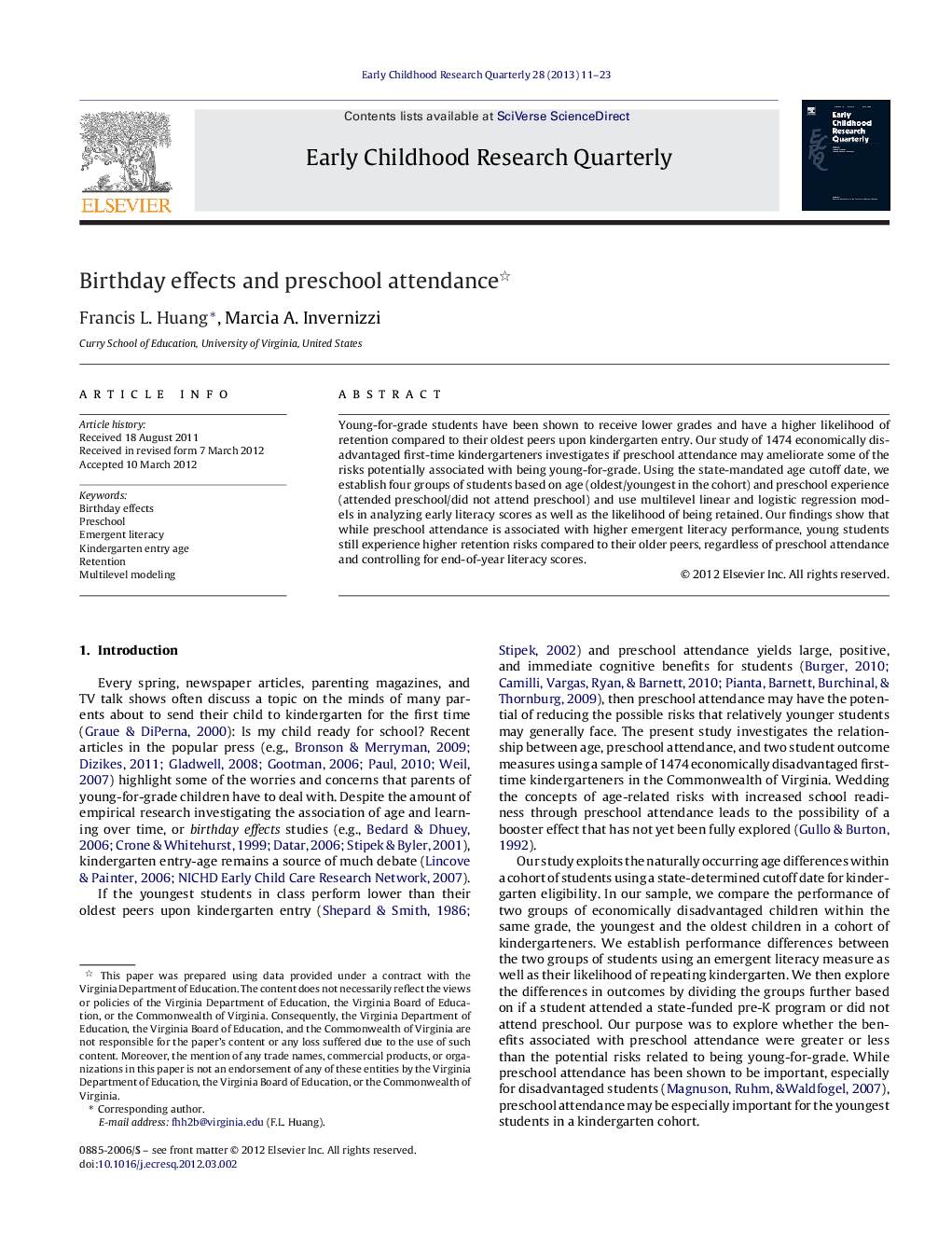| Article ID | Journal | Published Year | Pages | File Type |
|---|---|---|---|---|
| 353757 | Early Childhood Research Quarterly | 2013 | 13 Pages |
Young-for-grade students have been shown to receive lower grades and have a higher likelihood of retention compared to their oldest peers upon kindergarten entry. Our study of 1474 economically disadvantaged first-time kindergarteners investigates if preschool attendance may ameliorate some of the risks potentially associated with being young-for-grade. Using the state-mandated age cutoff date, we establish four groups of students based on age (oldest/youngest in the cohort) and preschool experience (attended preschool/did not attend preschool) and use multilevel linear and logistic regression models in analyzing early literacy scores as well as the likelihood of being retained. Our findings show that while preschool attendance is associated with higher emergent literacy performance, young students still experience higher retention risks compared to their older peers, regardless of preschool attendance and controlling for end-of-year literacy scores.
► We investigated the effects of kindergarten entry age and preschool attendance using the state age cutoff date to create two groups of the youngest and oldest students in a cohort. ► We analyzed data from approximately 1500 economically disadvantaged kindergarteners using emergent literacy scores and their likelihood of retention. ► Results indicated that preschool attendance was beneficially associated with higher literacy scores. ► However, the youngest students in the cohort still had higher probabilities of being retained, despite attending preschool.
